#children of Alexander the Great
Explore tagged Tumblr posts
Note
Noting your previous statements that the historical man was likely distant with his own children, curious how do you plan to depict Alexandros in your novels as a parent? And how his and Hephaistion’s dynamics/relationship evolves once children start entering the fray?
There won't really be any children in the story. Barsine was sent back to Pergamon either once she was pregnant or shortly after Herakles was born, and if he might have interacted with them that last winter in Ekbatana, they didn't return to Babylon with him. And Roxane was still pregnant when he died. So there really aren't any kids for them to interact with--or not any that are Alexander's.
I think he would likely have been distant, if proud to have them, at least until they were old enough to travel with the army. But as he didn't live that long, we can't know, alas.
11 notes
·
View notes
Text
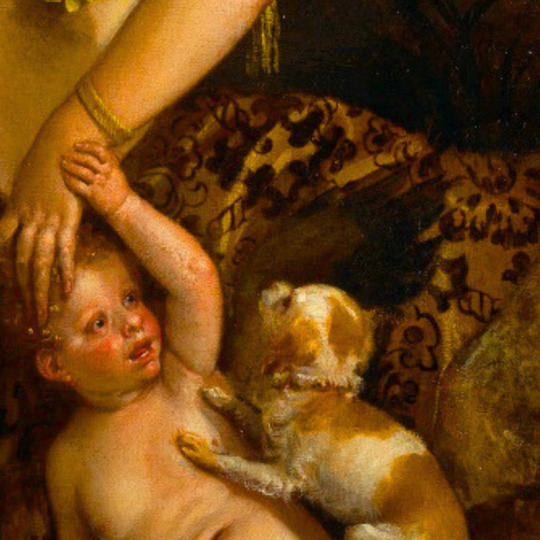

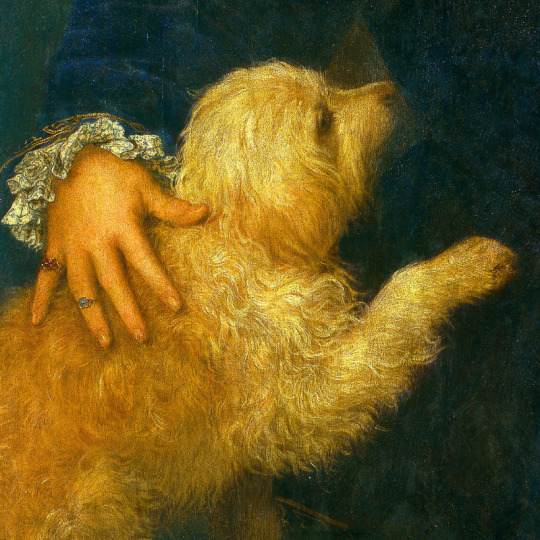
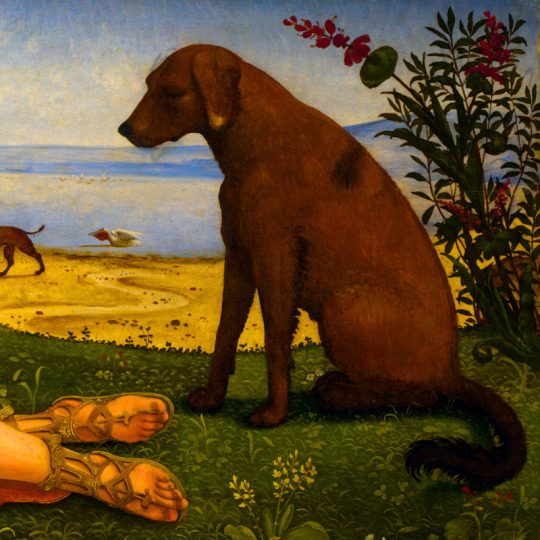
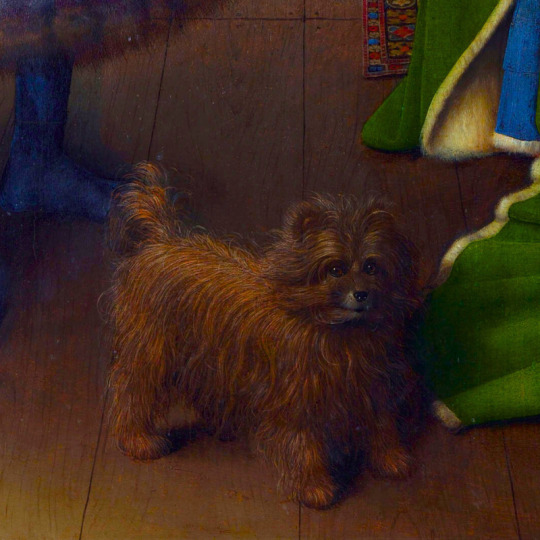

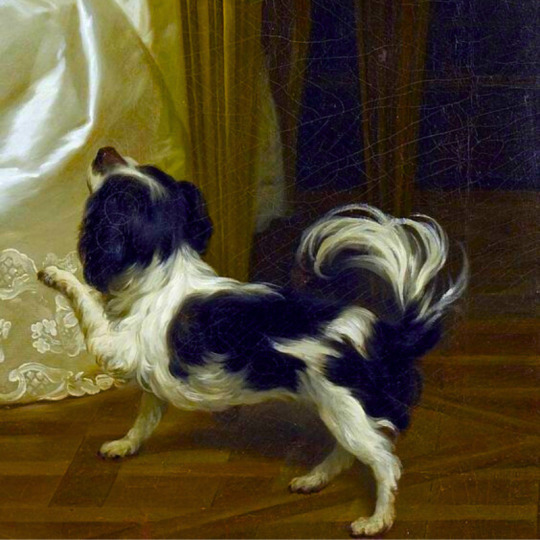
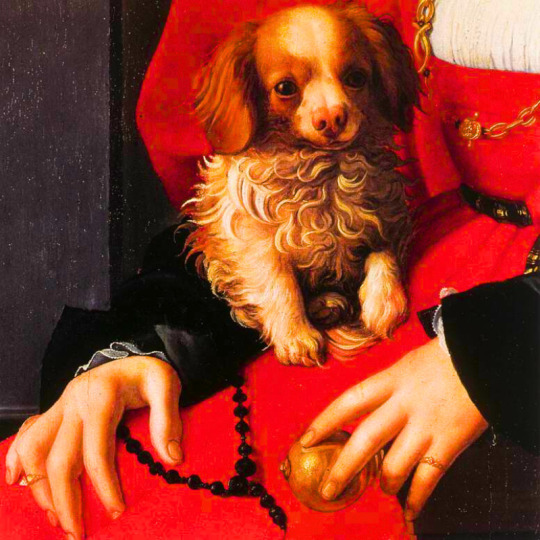



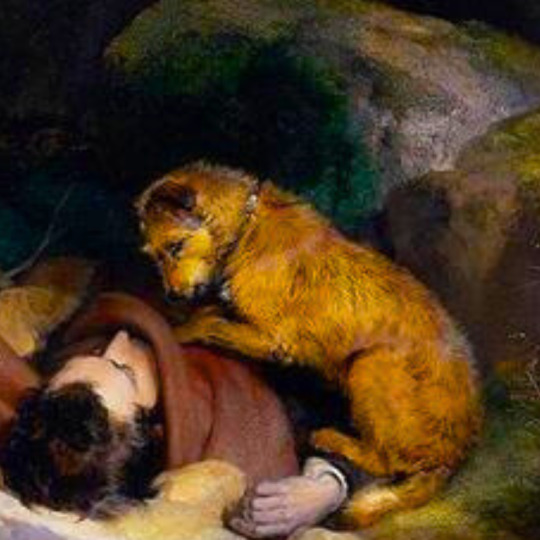
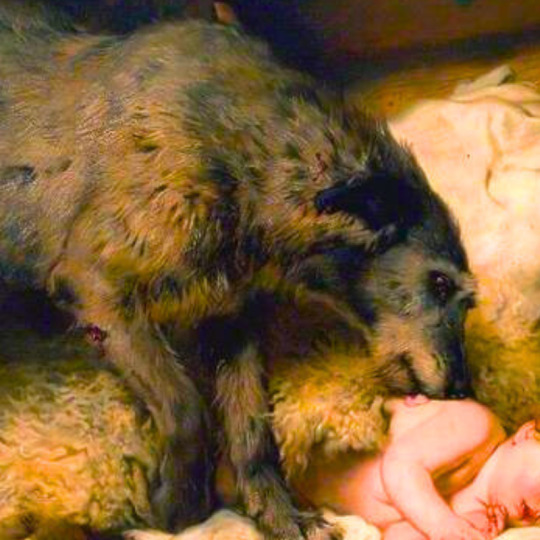








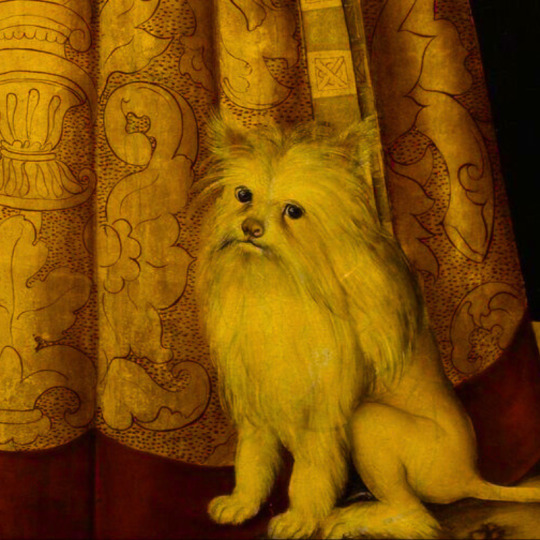
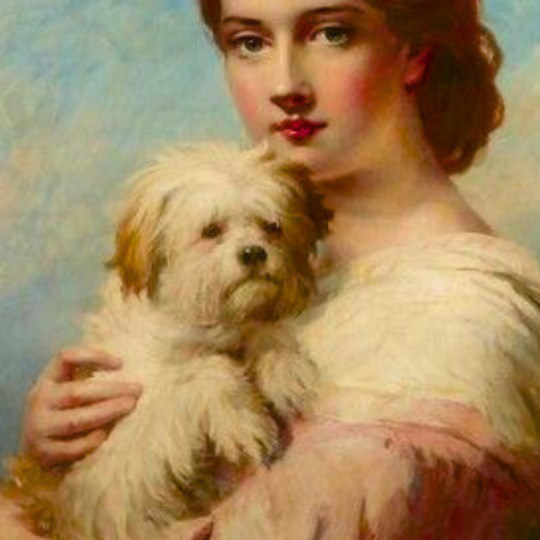


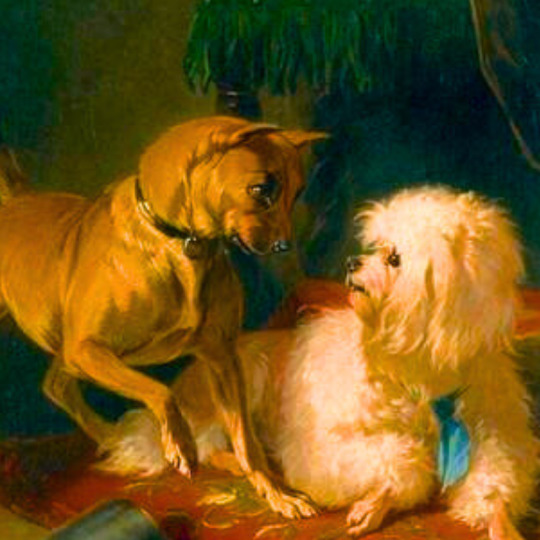
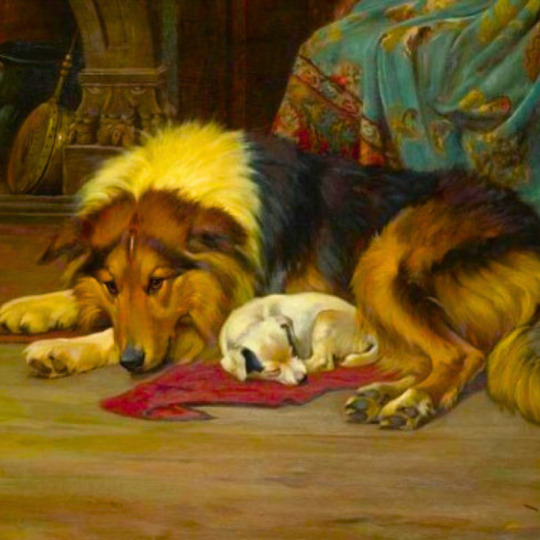
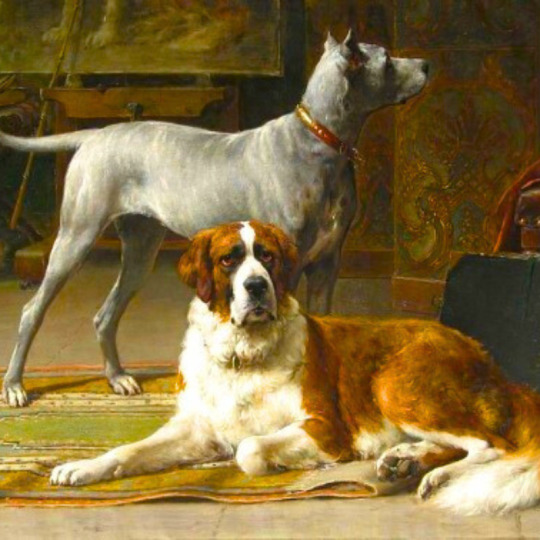


dogs + art
#mars and venus with cupid and a dog by paola veronese#venus of urbino by titian#portrait of federico ii gonzaga by titian#the death of procris by piero di cosimo#arnolfini portrait by jan van eyck#venus and adonis by titian#portrait of the countesse d'egmont pignatelli in spanish costume by alexander roslin#portrait of a lady in red by agnolo bronzino#maselli family portrait by lavinia fontana#children of the marquis de bethune playing with dog by francois hubert drouais#portrait of princess ekaterina dmitrievna golitsyna by louis-michel van loo#attachment by edwin landseer#gelert by charles b. barber#the poor dog the shepherd's grave by edwin landseer#requiescat by briton riviere#marie leszczinska#my lady's pets by arthur wardle#the great debate by george armfield#portrait of a brown and white toy spaniel in a landscape by jacques-charled oudry#darby in his basket kennel by anthony frederick sandys#portrait of john 3rd baron monson of burton by pompeo girolamo batoni#portrait of dutchess katharina von mecklenburg by lucas cranach the elder#young lady and her dog by james john hill#young girl with a spaniel by jean-baptise greuze#the masters chair by john henry dolph#interior with two dogs by conradijn cunaeus#no walk today by wright baker#painter's studio by otto erelman#study of greyhounds by alexandre-francois desportes#sitting pretty by horatio henry couldrey
194 notes
·
View notes
Text



Reminds me of “The World Was Wide Enough”, a song from the musical, Hamilton!
youtube
#sonic movie 3#sonicmovie3hype#movie shadow#movie sonic#I’d imagine Movie Sonic being Alexander Hamilton and Movie Shadow as Aaron Burr 😭#🎶The World Was Wide Enough Sayonara… Shadow The Hedgehog🎶#Movie Shadow: 🎶 I imagine death so much it feels more like a memory Is this where it gets me on my feet several feet ahead of me? 🎶#🎶 I see it coming do I run or fire my gun or let it be?🎶 🎶There is no beat no melody 🎶#🎶 Sonic a young hedgehog whom I consider an uneasy ally and had our first rivalry Maybe the last face I ever see 🎶#🎶 If I throw away my shot is this how you'll remember me? 🎶 🎶 What if this sacrifice is my legacy? Legacy what is a legacy? 🎶#🎶 It's planting seeds in a garden you never get to see 🎶 🎶 I wrote some notes at the beginning of a song someone will sing for me 🎶🎶#🎶Earth you great unfinished symphony it was too much of a Mad Mad Mad Mad World for me 🎶#🎶 You let me make a difference a place where even weird technicolour space alien orphan children 🎶#🎶 Can leave their fingerprints and rise up I'm running out of time I'm running and my time's up 🎶#🎶 Wise up eyes up I catch a glimpse of the other side 🎶 🎶My creator my father Gerald Robotnik is on the other side 🎶#🎶 He's with his granddaughter Maria who’s on the other side Teach me how to say goodbye 🎶 🎶 Rise up rise up rise up MARIA! 🎶#🎶 My best friend my sister I’d love you to take your time 🎶 “I'll give them a chance to be happy…”#Company: 🎶 he uses the very last of his chaos energy- Movie Shadow: “CHAOS CONTROL!” Movie Sonic: “WAIT!”#Movie Sonic: “He was unable to maintain his super transformation form any longer” “I tried to stop him but he punched me away”#“I get a drink” = “I get a chilli dog 💀”#🎶Aaaah Aaaah Aaaah 🎶#“I hear cheering in the streets” 🎶Aaaah Aaaah Aaaah 🎶#🎶 They say Gerald and Shadow Were both at her side when she died 🎶#🎶 Death doesn't discriminate Between the sinners and the saints it takes and it takes and it takes 🎶#🎶History obliterates in every picture it paints It paints me and all my mistakes 🎶#Movie Sonic: 🎶 Before Shadow The Hedgehog feel down to Earth he aimed at the sky He may have been the first one to die 🎶#🎶 But I'm the one who paid for it I survived but I paid for it 🎶 🎶Now I’m the “hero” in your history I was too young and blind to see 🎶#🎶I should've known I should've known the world was wide enough for both The Ultimate Lifeform and me 🎶#🎶The World Was Wide Enough For both The Ultimate Lifeform and me… 😭🎶
21 notes
·
View notes
Video
SISIGAMBIS-ART-PINTURA-MADRE-REY-DARIO III-PERSIA-ACUARELAS-PERSONAJES-COLECCION-ALEJANDRO MAGNO-PINTOR-ERNEST DESCALS por Ernest Descals Por Flickr: SISIGAMBIS-ART-PINTURA-MADRE-REY-DARIO III-PERSIA-ACUARELAS-PERSONAJES-COLECCION-ALEJANDRO MAGNO-PINTOR-ERNEST DESCALS- La Reina Madre del Imperio Persa, su hijo el Rey DARIO III la abandonó en su campamento junto a las otras mujeres que formaban el Harén, ALEJANDROMAGNO la mantuvo bajo su protección personal y se estableció una relación familiar entre ambos, SISIGAMBIS acabó perdiendo a su hijo Dario asesinado por sus propios generales, Alejandro la tuvo como a su propia Madre en substitución de Olimpia que residía en Pella y más tarde en el Reino de Epiro. Cuando se produjo el desenlace de la muerte de Alejandro en Babilonia Sisigambis había perdido a sus dos hijos, el natural y el adoptado. Rostro con expresión de tristeza, el Destino golpeó dos veces. Pintura del artista pintor Ernest Descals con acuarelas sobre papel de 27 x 35 centímetros, Pintar el catálogo de personajes que rodearon al Rey de Macedonia en una amplia Colección de Arte histórico.
#SISIGAMBIS#MADRE#MOTHER#REY DE REYES#DINASTIA AQUEMENIDA#PERSIA#IMPERIO PERSA#SON#HIJO#HIJOS#CHILDREN#KING#REY#ALEJANDRO MAGNO#ALEXANDROS#MACEDONIO#MACEDONIA#MACEDONIAN#ALEXANDER THE GREAT#REINA MADRE#ADOPCION#MUERTE#DEATH#PERDIDAS#DESTINO#DESTINY#RELACION#PERSONAJES#CHARACTERS#MUJER
0 notes
Text




#alessandro il macedone#alexander the conqueror#prossime uscite#alexander the great#alessandro il grande#alessandro iii di macedonia#alessandro magno#alessandro il conquistatore#alexander iii of macedon#alexander of macedon#Prometeica#Federico Corradini#Silvia Baroncelli#Children's book
1 note
·
View note
Text
I’ve teased it. You’ve waited. I’ve procrastinated. You’ve probably forgotten all about it.
But now, finally, I’m here with my solarpunk resources masterpost!
YouTube Channels:
Andrewism
The Solarpunk Scene
Solarpunk Life
Solarpunk Station
Our Changing Climate
Podcasts:
The Joy Report
How To Save A Planet
Demand Utopia
Solarpunk Presents
Outrage and Optimisim
From What If To What Next
Solarpunk Now
Idealistically
The Extinction Rebellion Podcast
The Landworkers' Radio
Wilder
What Could Possibly Go Right?
Frontiers of Commoning
The War on Cars
The Rewild Podcast
Solacene
Imagining Tomorrow
Books (Fiction):
Ursula K. Le Guin: The Left Hand of Darkness The Dispossessed The Word for World is Forest
Becky Chambers: A Psalm for the Wild-Built A Prayer for the Crown-Shy
Phoebe Wagner: When We Hold Each Other Up
Phoebe Wagner, Bronte Christopher Wieland: Sunvault: Stories of Solarpunk and Eco-Speculation
Brenda J. Pierson: Wings of Renewal: A Solarpunk Dragon Anthology
Gerson Lodi-Ribeiro: Solarpunk: Ecological and Fantastical Stories in a Sustainable World
Justine Norton-Kertson: Bioluminescent: A Lunarpunk Anthology
Sim Kern: The Free People’s Village
Ruthanna Emrys: A Half-Built Garden
Sarina Ulibarri: Glass & Gardens
Books (Non-fiction):
Murray Bookchin: The Ecology of Freedom
George Monbiot: Feral
Miles Olson: Unlearn, Rewild
Mark Shepard: Restoration Agriculture
Kristin Ohlson: The Soil Will Save Us
Rowan Hooper: How To Spend A Trillion Dollars
Anna Lowenhaupt Tsing: The Mushroom At The End of The World
Kimberly Nicholas: Under The Sky We Make
Robin Wall Kimmerer: Braiding Sweetgrass
David Miller: Solved
Ayana Johnson, Katharine Wilkinson: All We Can Save
Jonathan Safran Foer: We Are The Weather
Colin Tudge: Six Steps Back To The Land
Edward Wilson: Half-Earth
Natalie Fee: How To Save The World For Free
Kaden Hogan: Humans of Climate Change
Rebecca Huntley: How To Talk About Climate Change In A Way That Makes A Difference
Christiana Figueres, Tom Rivett-Carnac: The Future We Choose
Jonathon Porritt: Hope In Hell
Paul Hawken: Regeneration
Mark Maslin: How To Save Our Planet
Katherine Hayhoe: Saving Us
Jimmy Dunson: Building Power While The Lights Are Out
Paul Raekstad, Sofa Saio Gradin: Prefigurative Politics
Andreas Malm: How To Blow Up A Pipeline
Phoebe Wagner, Bronte Christopher Wieland: Almanac For The Anthropocene
Chris Turner: How To Be A Climate Optimist
William MacAskill: What We Owe To The Future
Mikaela Loach: It's Not That Radical
Miles Richardson: Reconnection
David Harvey: Spaces of Hope Rebel Cities
Eric Holthaus: The Future Earth
Zahra Biabani: Climate Optimism
David Ehrenfeld: Becoming Good Ancestors
Stephen Gliessman: Agroecology
Chris Carlsson: Nowtopia
Jon Alexander: Citizens
Leah Thomas: The Intersectional Environmentalist
Greta Thunberg: The Climate Book
Jen Bendell, Rupert Read: Deep Adaptation
Seth Godin: The Carbon Almanac
Jane Goodall: The Book of Hope
Vandana Shiva: Agroecology and Regenerative Agriculture
Amitav Ghosh: The Great Derangement
Minouche Shafik: What We Owe To Each Other
Dieter Helm: Net Zero
Chris Goodall: What We Need To Do Now
Aldo Leopold: A Sand County Almanac
Jeffrey Jerome Cohen, Stephanie Foote: The Cambridge Companion To The Environmental Humanities
Bella Lack: The Children of The Anthropocene
Hannah Ritchie: Not The End of The World
Chris Turner: How To Be A Climate Optimist
Kim Stanley Robinson: Ministry For The Future
Fiona Mathews, Tim Kendall: Black Ops & Beaver Bombing
Jeff Goodell: The Water Will Come
Lynne Jones: Sorry For The Inconvenience But This Is An Emergency
Helen Crist: Abundant Earth
Sam Bentley: Good News, Planet Earth!
Timothy Beal: When Time Is Short
Andrew Boyd: I Want A Better Catastrophe
Kristen R. Ghodsee: Everyday Utopia
Elizabeth Cripps: What Climate Justice Means & Why We Should Care
Kylie Flanagan: Climate Resilience
Chris Johnstone, Joanna Macy: Active Hope
Mark Engler: This is an Uprising
Anne Therese Gennari: The Climate Optimist Handbook
Magazines:
Solarpunk Magazine
Positive News
Resurgence & Ecologist
Ethical Consumer
Films (Fiction):
How To Blow Up A Pipeline
The End We Start From
Woman At War
Black Panther
Star Trek
Tomorrowland
Films (Documentary):
2040: How We Can Save The Planet
The People vs Big Oil
Wild Isles
The Boy Who Harnessed The Wind
Generation Green New Deal
Planet Earth III
Video Games:
Terra Nil
Animal Crossing
Gilded Shadows
Anno 2070
Stardew Valley
RPGs:
Solarpunk Futures
Perfect Storm
Advocacy Groups:
A22 Network
Extinction Rebellion
Greenpeace
Friends of The Earth
Green New Deal Rising
Apps:
Ethy
Sojo
BackMarket
Depop
Vinted
Olio
Buy Nothing
Too Good To Go
Websites:
European Co-housing
UK Co-housing
US Co-housing
Brought By Bike (connects you with zero-carbon delivery goods)
ClimateBase (find a sustainable career)
Environmentjob (ditto)
Businesses (🤢):
Ethical Superstore
Hodmedods
Fairtransport/Sail Cargo Alliance
Let me know if you think there’s anything I’ve missed!
#solarpunk#hopepunk#cottagepunk#environmentalism#social justice#community#optimism#bright future#climate justice#tidalpunk#turbinepunk#resources#masterpost#books#films#magazines#podcasts#apps
1K notes
·
View notes
Text
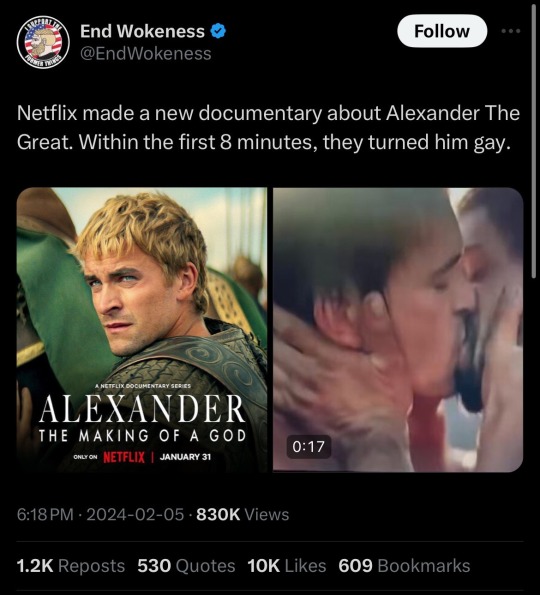
it actually wasn’t netflix who turned alexander the great gay, it was ben willbond in 2009 on hit children’s tv show horrible histories
#i genuinely believe that if horrible histories came out today conservatives would lose their minds#horrible histories#ben willbond#bbc ghosts#alexander the great#mine
3K notes
·
View notes
Text

The 100 Best Books of the 21st Century.
As voted on by 503 novelists, nonfiction writers, poets, critics and other book lovers — with a little help from the staff of The New York Times Book Review.
NYT Article.
*************
Q: How many of the 100 have you read? Q: Which ones did you love/hate? Q: What's missing?
Here's the full list.
100. Tree of Smoke, Denis Johnson 99. How to Be Both, Ali Smith 98. Bel Canto, Ann Patchett 97. Men We Reaped, Jesmyn Ward 96. Wayward Lives, Beautiful Experiments, Saidiya Hartman 95. Bring Up the Bodies, Hilary Mantel 94. On Beauty, Zadie Smith 93. Station Eleven, Emily St. John Mandel 92. The Days of Abandonment, Elena Ferrante 91. The Human Stain, Philip Roth 90. The Sympathizer, Viet Thanh Nguyen 89. The Return, Hisham Matar 88. The Collected Stories of Lydia Davis 87. Detransition, Baby, Torrey Peters 86. Frederick Douglass, David W. Blight 85. Pastoralia, George Saunders 84. The Emperor of All Maladies, Siddhartha Mukherjee 83. When We Cease to Understand the World, Benjamin Labutat 82. Hurricane Season, Fernanda Melchor 81. Pulphead, John Jeremiah Sullivan 80. The Story of the Lost Child, Elena Ferrante 79. A Manual for Cleaning Women, Lucia Berlin 78. Septology, Jon Fosse 77. An American Marriage, Tayari Jones 76. Tomorrow, and Tomorrow, and Tomorrow, Gabrielle Zevin 75. Exit West, Mohsin Hamid 74. Olive Kitteridge, Elizabeth Strout 73. The Passage of Power, Robert Caro 72. Secondhand Time, Svetlana Alexievich 71. The Copenhagen Trilogy, Tove Ditlevsen 70. All Aunt Hagar's Children, Edward P. Jones 69. The New Jim Crow, Michelle Alexander 68. The Friend, Sigrid Nunez 67. Far From the Tree, Andrew Solomon 66. We the Animals, Justin Torres 65. The Plot Against America, Philip Roth 64. The Great Believers, Rebecca Makkai 63. Veronica, Mary Gaitskill 62. 10:04, Ben Lerner 61. Demon Copperhead, Barbara Kingsolver 60. Heavy, Kiese Laymon 59. Middlesex, Jeffrey Eugenides 58. Stay True, Hua Hsu 57. Nickel and Dimed, Barbara Ehrenreich 56. The Flamethrowers, Rachel Kushner 55. The Looming Tower, Lawrence Wright 54. Tenth of December, George Saunders 53. Runaway, Alice Munro 52. Train Dreams, Denis Johnson 51. Life After Life, Kate Atkinson 50. Trust, Hernan Diaz 49. The Vegetarian, Han Kang 48. Persepolis, Marjane Satrapi 47. A Mercy, Toni Morrison 46. The Goldfinch, Donna Tartt 45. The Argonauts, Maggie Nelson 44. The Fifth Season, N.K. Jemisin 43. Postwar, Tony Judt 42. A Brief History of Seven Killings, Marlon James 41. Small Things Like These, Claire Keegan 40. H Is for Hawk, Helen Macdonald 39. A Visit from the Goon Squad, Jennifer Egan 38. The Savage Detectives, Roberto Balano 37. The Years, Annie Ernaux 36. Between the World and Me, Ta-Nehisi Coates 35. Fun Home, Alison Bechdel 34. Citizen, Claudia Rankine 33. Salvage the Bones, Jesmyn Ward 32. The Lines of Beauty, Alan Hollinghurst 31. White Teeth, Zadie Smith 30. Sing, Unburied, Sing, Jesmyn Ward 29. The Last Samurai, Helen DeWitt 28. Cloud Atlas, David Mitchell 27. Americanah, Chimamanda Ngozi Adichie 26. Atonement, Ian McEwan 25. Random Family, Adrian Nicole LeBlanc 24. The Overstory, Richard Powers 23. Hateship, Friendship, Courtship, Loveship, Marriage, Alice Munro 22. Behind the Beautiful Forevers, Katherine Boo 21. Evicted, Matthew Desmond 20. Erasure, Percival Everett 19. Say Nothing, Patrick Radden Keefe 18. Lincoln in the Bardo, George Saunders 17. The Sellout, Paul Beatty 16. The Amazing Adventures of Kavalier & Clay, Michael Chabon 15. Pachinko, Min Jin Lee 14. Outline, Rachel Cusk 13. The Road, Cormac McCarthy 12. The Year of Magical Thinking, Joan Didion 11. The Brief Wondrous Life of Oscar Wao, Junot Diaz 10. Gilead, Marilynne Robinson 9. Never Let Me Go, Kazuo Ishiguro 8. Austerlitz, W.G. Sebald 7. The Underground Railroad, Colson Whitehead 6. 2666, Roberto Bolano 5. The Corrections, Jonathan Franzen 4. The Known World, Edward P. Jones 3. Wolf Hall, Hilary Mantel 2. The Warmth of Other Suns, Isabel Wilkerson 1. My Brilliant Friend, Elena Ferrante
854 notes
·
View notes
Text
How the kleptocrats and oligarchs hunt civil society groups to the ends of the Earth
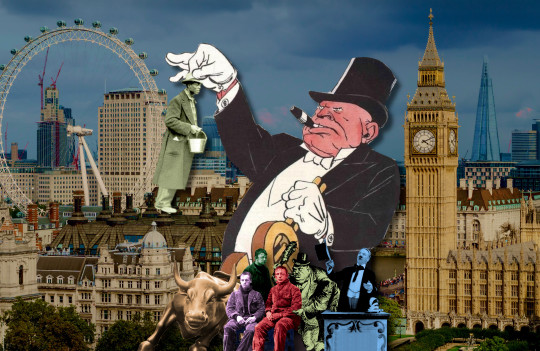
It's a great time to be an oligarch! If you have accumulated a great fortune and wish to put whatever great crime lies behind it behind you, there is an army of fixers, lickspittles, thugs, reputation-launderers, procurers, henchmen, and other enablers who have turnkey solutions for laundering your reputation and keeping the unwashed from building a guillotine outside the gates of your compound.
The field of International Relations has studied the enemies of the Klept in detail: the Transnational Activist Network is a well-documented phenomenon. But far more poorly understood is the Transnational Uncivil Society Network, who will polish any turd of sufficient wealth to a high, professional gloss.
These TUSNs are the subject of a new, timely scholarly paper by Alexander Cooley, John Heathershaw and Ricard Soares de Oliveira: "Transnational Uncivil Society Networks: kleptocracy’s global fightback against liberal activism," published in last month's European Journal of International Relations:
https://ora.ox.ac.uk/objects/uuid:5e5a3052-c693-4991-a7cc-bc2b47134467/download_file?file_format=application%2Fpdf&safe_filename=Cooley_et_al_2023_transnational_uncivil_society.pdf&type_of_work=Journal+article
The authors document how a collection of institutions – some coercive, others organized around good works – allow kleptocrats to take power, keep power, and use power. This includes "wealth managers, company providers, accounting firms, and international bankers" who create the complex financial structures that obscure the klept's wealth. It also includes "second citizenship managers and lawyers" that facilitate the klept's transnational nature, both to provide access to un-looted, prosperous places to visit, and boltholes to escape to in the face of coup or reform. It includes the real-estate brokers and other asset facilitators, who turn whole precincts of the world's greatest cities into empty safe-deposit boxes in the sky, while ensuring that footlose criminal elites always have a penthouse to perch in when they take a break from the desiccated husks they've drained dry back home.
Of course, it also includes the PR managers and philanthropic ventures that allow the klept to launder their reputation, to make themselves synonymous with good deeds rather than mass murder. Think here of how the Sacklers used charity to turn their family name into a synonym for culture and fine art, rather than death by opioid overdose:
https://pluralistic.net/2023/08/11/justice-delayed/#justice-redeemed
Beyond providing comfort to "Politically Exposed Persons" and "High Net-Worth Individuals," TUSNs are concerned with neutralizing TANs. Activists in these transnational networks play an inside-outside game: in-country activists will recruit peers abroad to bring attention to the crimes of their local kleptocrats. These overseas partners target the klept in the places they go to play and spend, spoiling their fun – and if they succeed in getting corrupt leaders censured abroad, then in-country activists can leverage that bad press to fight the klept at home.
To fight this "Boomerang Effect," TUSNs seek to burnish corrupt officials' reputations abroad, getting their names on humanitarian prizes, beloved sports teams, cultural institutions and great universities. They seek to capture international governance institutions that might wrong-foot kleptocrats, co-opting them to enable and even celebrate looters.
When it comes to elite philanthropy, TUSNs are necessarily selective. Kleptocrats' foundations don't fund anti-kleptocratic groups – they stick to "education, public health, the environment and the arts." These domains steer clear of human rights questions that might implicate their benefactors. Russian oligarchs love children's charities and disability rights – provided they don't target the Russian state.
If charitable giving is reputation laundering's carrot, then "reputation management" is the laundry's stick. Think of organized copyfraudsters who clone websites that have criticized their clients, then backdate the articles, then accuse the originals of infringing copyright in order to get them de-listed from Google or taken offline altogether:
https://pluralistic.net/2021/04/23/reputation-laundry/#dark-ops
Reputation managers also spend a lot of time in court. In the UK – the world's leader in libel tourism, thanks to a legal system designed to let posh monsters sue muckraking journalists into silence – Russian oligarchs have perfected the art of forcing their critics to shut up and go away:
https://pluralistic.net/2022/03/04/londongrad/#enablers
Indeed, London is a one-stop shop for the global klept, a place were forelock-tugging Renfields will buy you a Mayfair mansion under cover of a numbered company, sue your critics into silence, funnel your money into an anonymous Channel Islands account:
https://pluralistic.net/2022/01/07/the-klept/#pep
They'll sell you whole galleriesworth of "fine art" that you can have relocated to a climate-controlled container in a Swiss or Irish freeport:
https://pluralistic.net/2020/07/14/poesy-the-monster-slayer/#moneylab
They'll give your thick-as-pigshit progeny a PhD and never check to see whether he wrote his thesis himself:
https://en.wikipedia.org/wiki/LSE%E2%80%93Gaddafi_affair
Then they'll hook you up with a cyber-arms dealer to hunt your enemies by capturing their devices:
https://pluralistic.net/2021/07/27/gas-on-the-fire/#a-safe-place-for-dangerous-ideas
But don't let Brexit stop you from shopping for bargains on the continent. The Golden Passports of the EU – available in a variety of flavors, from Maltese to Cypriot to Portuguese – offer the discerning failson access to the luxury good shops and fleshpots of 27 advanced economies, making it a favorite of the Khmer Riche – the junior klept of Cambodia's ruling faction:
https://www.reuters.com/investigates/special-report/cambodia-hunsen-wealth/
But golden passports are for amateurs. Skilled klepts travel on diplomatic passports, which offer the twin benefits of free movement and consequence-free criminality, thanks to diplomatic immunity. The former Kazakh dictator's son-in-law enjoyed a freewheeling diplomatic life in Vienna; one daughters of the dictator of Tajikistan had a jolly time as an envoy to DC; another, to London (where else?).
All this globetrotting serves a second purpose: when rival elites seize power back home and force the old guard into exile, those ex-monsters can show up in the lands they called their second homes and apply for asylum. It turns out that even bomb-the-boats UK will welcome any asylum seeker who enters via the private jet terminal at City Airport (to be fair, these "refugees" have extensive properties in Zone 1 and country places in the Home Counties, so they won't need housing).
This stuff works. After Kazakh state goons murdered at least 14 protesters at a Zhanaozen oil facility in 2011, human rights groups around the world took up the cause. But they were effectively neutralized by TUSNs, with former UK PM Tony Blair writing on behalf of the Kazakh government to the EU condemning any kind of international investigation into the mass killings (add "former Prime Ministers" to the list of commodities for sale in the UK to sufficiently well-resourced murderer).
The authors close their paper with two case-studies. The first is of the daughters of Uzbek dictator Islam Karimov, Gulnara and Lola. And President Karimov was indeed a dictator: he trapped his population within his borders, forced them to use unconvertible scrip in place of money, and ordered the murder of hundreds of peaceful protesters, plunging the country into international isolation.
But while Uzbeks were sealed within their borders, Gulnara Karimov became an international player, running a complex network of businesses that mixed the products of the nation's oilfields with her family's fortune. She solicited – and received – bribes from Teliasonera, MTS and Vimpelcom, who were all vying for the contract to provide service in Uzbekistan. All told, she extracted more than $1b in bribes, laundering them through Latvia, Hong Kong and New York. She acquired real-estate in France and Switzerland, and her spree continued until her father collaborated with Uzbek security to seize her assets and place her under house-arrest.
Lola Karimova-Tillyaeva was Gulnara's estranged younger sister. She and her husband Timur Tillyaev ran the Dubai-based SecureTrade, which did extensive business with "opaque Scottish Limited Partnerships," laundering more than $127m in a single year to offshore accounts in the UAE and Switzerland. They acquired many luxe assets – a jet, a Californian villa, and an LA perfumier.
Lola styled herself as the face of the Karimovas abroad, a "philanthropist and cultural ambassador." She was a UNESCO ambassador and commissioned works of monumental art – and also sued the shit out of news outlets that reported factual matters about her family repressive activity at home. She organized AIDS charities in the name of Uzbekistan – even as her father was imprisoning a writer for publishing a book explaining how to have safer sex.
The second case-study is on Isabel dos Santos, "Africa's richest woman," daughter of Angolan dictator Jose Eduardo dos Santos. Isabel's vast fortune stemmed from her personal capture of vast swathes of the third-largest economy in Africa: "telecommunications, banking, diamonds, real estate and cement, among many others." Isabel enjoyed seemingly limitless access to state credit and co-investment, and was given first crack at newly deregulated industries. Foreign firms that invested in Angola were required to "partner" with Isabel's businesses.
Isabel claimed to be a "self-made woman" – a claim credulously parroted by the western press, including the FT. She used her homegrown fortune to become a major player abroad, especially in Portugal, where she was represented by the leading Portuguese law-firm PLMJ. Her enablers are who's who of corruption-loving lickspittles: McKinsey, Ernst and Young, Boston Consulting Group, and the Spanish BigLaw firm Uri Menendez.
Isabel cultivated a public facade of philanthropic giving and public spirited activism, serving as head of the Angolan Red Cross. She attended Davos and spoke at the LSE (she was also invited to Oxford, but her invitation was subsequently rescinded). On social media, she dismissed critics of her wealth and corruption as "colonialists," decrying their "racism" and "prejudice."
Isabel dos Santos's corrupt sources of wealth were finally, irrefutably exposed through the Luanda Leaks, in which the International Consortium of Investigative Journalists mapped the network of "top banks, management consultants and legal firms that were central to dos Santos’s operations."
Both case studies shed light on the network of brilliant, driven enablers and procurers without whom the world's greatest monsters would falter. It's a rare window on a secretive world, one that is poorly understood even by its inhabitants. As Michael Mechanic wrote in Jackpot, his 2021 book on vast, intergenerational fortunes, the winners of the lucky orifice lottery often lack any real understanding of how The Money is structured, grown and protected:
https://pluralistic.net/2021/04/13/public-interest-pharma/#affluenza
This point was reiterated by Abigail Disney, in a brave piece on what it's like to grow up subject to the oversight of these millionaires who babysit the children of billionaires:
https://pluralistic.net/2021/06/19/dynastic-wealth/#caste
This is an important contribution to the literature. We naturally focus on the ultrawealthy individuals whose reputations and fortunes are the subject of so much attention, but without the TUSNs, they would be largely helpless.

Going to Burning Man? Catch me on Tuesday at 2:40pm on the Center Camp Stage for a talk about enshittification and how to reverse it; on Wednesday at noon, I'm hosting Dr Patrick Ball at Liminal Labs (6:15/F) for a talk on using statistics to prove high-level culpability in the recruitment of child soldiers.
On September 6 at 7pm, I'll be hosting Naomi Klein at the LA Public Library for the launch of Doppelganger.
On September 12 at 7pm, I'll be at Toronto's Another Story Bookshop with my new book The Internet Con: How to Seize the Means of Computation.

If you'd like an essay-formatted version of this post to read or share, here's a link to it on pluralistic.net, my surveillance-free, ad-free, tracker-free blog:
https://pluralistic.net/2023/08/24/launderers-enforcers-bagmen/#procurers

Image: Sam Valadi (modified) https://www.flickr.com/photos/132084522@N05/17086570218/
CC BY 2.0: https://creativecommons.org/licenses/by/2.0/
--
Colin (modified) https://commons.wikimedia.org/wiki/File:Palace_of_Westminster_from_the_dome_on_Methodist_Central_Hall_(cropped).jpg
CC BY-SA 4.0 https://creativecommons.org/licenses/by-sa/4.0/deed.en
#international relations#ir#enablers#consiglieri#lickspittles#plutes#guillotine watch#politically exposed persons#peps#high net work individuals#hnwis#oligarchs#reputation laundering#spyware#renfields#big law#uk#kleptocrats#transnational activist networks#tans#civil society#ngos#transnational uncivil society networks#tusns#slapps#Uzbekistan#Gulnara Karimova#Isabel dos Santos#angola#corruption
2K notes
·
View notes
Note
So I know you were the historical consultant for the Netflix "Alexander: Making of a God." I just read a post that said this, and wondered if you can comment on it?
"Btw, not the documentary commented by professors in history and archeaology, saying Stateira, wife of Darius III, died giving birth to Alexander's son (and that Alexander rubbed it in Darius' face) because Plutarch - who was born 369 years after Alexander's death - said so. Other sources invalidate this theory (like the age of the child, being 4 to 7 years old when Stateira died, meaning he was already born when Alexander first met her). And other sources say Alexander only met her once, when he took Darius' camp and that was it.
However her daughter Strateira II (who might have been Barsine or her sister) did marry him but had no children with him.
He had 1 known son from Roxana, that's all. That's in part why his empire was so easily taken apart by his diadochi.
So I don't know why, except for drama) they went for that version nor why the professor corroborate it when it's the least likely."
Yes, this quoted bit suffers from some mix-ups. I’ve not seen the full post, although I have read a few others with similar misunderstandings. Most of these seem to arise from reading (bad) online potted entries about Statiera and/or Alexander. At least go for Heckel’s Who’s Who in the Age of Alexander the Great or The Oxford Classical Dictionary. Anyway, apologies if the below sounds overly critical. It’s obviously not personal. I’m just cutting through the confusion.
We’re told about Statiera’s death only by Plutarch, Justin, and Curtius, and all probably owe to the lost source Kleitarchos. Even if Plutarch isn’t (technically) part of the vulgate while Diodoros is (who doesn’t mention it), Plutarch still used some of the same sources. (Diodoros no doubt left it out as part of his typical telescoping.) Yet all three disagree on the cause of her death, even if they do agree it wasn’t long before Gaugamela and Alexander gave her a sumptuous funeral. But the timing means, if she were pregnant, it couldn’t have been Darius’s child. I’ve discussed Statiera’s possible pregnancy before, so won’t again here, but it boils down to: if not Darius, it had to be Alexander. He wouldn’t have let anybody else touch the Queen of Persia.
In any case, ALL our surviving sources are late. The OP doesn’t seem aware the other source alluded to (Curtius) dates to the same period as Plutarch: late Julio-Claudians/early Flavians.* I checked Wikipedia, which gives a date for Plutarch’s birth (46 CE); I assume that’s where the OP got it, as it lines up with their estimate of “369.” But we don’t know his birth year except during the reign of Claudius after the acquisition of Britain and that he died early in Hadrian’s reign (see Lamberton 2001, 1). Anyway, Curtius probably lived a little before him, and Justin somewhat after.
Ergo, none of these sources are any closer to Alexander’s day, and trying to say one is less reliable than the other based on their dating only underscores the OP’s unfamiliarity with them.
Justin and Plutarch suggest Statiera died from complications related to pregnancy. Plutarch (30.1) says she died giving birth, while Justin (11.12.6) calls it a miscarriage. Only Curtius (4.10.18-19) says she died of, essentially, exhaustion. That’s the “other sources” the OP mentions, not realizing it’s just one. Only in Curtius do we hear about a young son of Darius named Ochus. The OP seems to have conflated that child with the baby born before Gaugamela. Looking at Wikipedia’s entry on Statiera, it mistakenly calls the baby that killed her a boy, but in fact, Plutarch doesn’t say (ἀποθανούσης ἐν ὠδῖσι). Again, a good example of why Wikipedia is unreliable as a resource.
In any case, these are two different children, and there may not have been a son. Either Curtius made him up or Alexander quietly did away with him not long after their capture, as the child disappears from Curtius after and is never mentioned by other sources, which might not be a surprise. But I’m a bit more inclined to think Curtius simply invented him as part of his “Good Alexander” pre-Gaugamela narrative arc. Ochus is used as a comparative to his father (3.12.26). The son is unafraid of Alexander and lets him pick him up while the father lost his nerve and fled the battle. See what Curtius did there?
In addition, Barsine/Statiera, not just Roxana, was pregnant at ATG’s death, which is why Roxana offed her. And there’s the supposed bastard, Herakles, from Barsine, Memnon’s widow. So, the OP is missing a couple (possible) kids who Alexander also fathered.
They seems to assume drama is the reason for the choice to make Statiera his lover. This, I’d like to address, as I happen to know why they did do it, and it’s something I support.
They were very, very interested in the fact Persian women had authority, and wanted to portray them as strong, even as advisors to their husbands (which they were). That becomes Statiera’s role with Alexander, too. This is part of their larger goal NOT to portray the Persians as just fall-guys for Alexander. Because they couldn’t show all the women—both for reasons of cost as well as to avoid confusing viewers with too many unfamiliar names/people—they settled on Statiera as representative, axing Barsine as his mistress, and Sisygambus as well. Statiera’s pregnancy, which is present in the sources, added context, not just “drama.” Historically speaking, it suggests the Chivalrous Alexander trope in both Plutarch and Curtius is more mythos than Realpolitik. Although see my earlier post on Statiera’s pregnancy, linked above. I don’t necessarily assume Alexander raped her.
--------------------------------------
* If an earlier date for Curtius is correct, then he was active under the later Julio-Claudians and may have written his history during the reign of Claudius—the same emperor under whom Plutarch was born. The Lives are later works, so probably date to the Flavians, or even Trajan. For more on Curtius, see Elizabeth Baynham (1988) and for Plutarch, Robert Lamberton has a more recent study (2001) than Hamilton’s classic commentary (1969).
#asks#Statiera wife of Darius#alexander: the making of a god#Alexander the Great#Statiera's pregnancy#Plutarch#Curtius#Ochus son of Darius#Alexander the Great and women#children of Alexander the Great#Classics#tagamemnon#ancient Persia#Alexander in film#Don't trust Wikipedia
10 notes
·
View notes
Text

This post is part of the Twisted Parents Series.
Content: Post-canon, general hcs, afab!fem!mc, marriage, children, household things.
Notes: this is an honest summary 😭 I tried to simplify as much as I could
Comments and reblogs are very welcome ♡

Resume HCs [1]

After graduating, his life was a chaos of happiness and despair.
At the same time, MC and he were in a relationship, but his mother was more crazy than never been.
MC and him dated in secret for a time, while he was still living with his mother.
When he finally managed to leave the house, it was an event. MC and he jumped of joy, celebrating the achievement.
After a few years of dating, he finally had the courage to ask she to marry him.
Riddle is a pediatrician. It's fun and sweet to see how caring he is with the kids. His profession has helped him a lot with anger management.
MC and Riddle have two children: a girl named Violete, and a boy named Alexander.

After graduation, MC and Trey pursued a healthy and long-lasting relationship.
They met each other's families, and Trey's parents and siblings adored MC.
The wedding was honestly something that was highly anticipated by both families.
Trey continued the family business, as expected of a great baker.
Trey and MC have three children together: two boys, Timothy and Thomas, and a girl, Rose.

After graduation, Cater was looking at houses to move into during the time he and MC were dating.
Cater reluctantly introduced his family to MC. It was an awkward dinner.
As soon as he got the house, he proposed to MC.
Cater is a journalist.
He and MC have two children together: a boy named Roy, and a girl named Astrid.

He actually complained about the postgraduate course. He was trying hard and getting help from his family.
He wanted to stay at home while he was in school, but his relationship with MC literally got the best of him and he wanted his own place sooner.
As soon as he finished his studies, they had already reached a certain peak in they relationship. So, he asked MC to marry him.
He proudly introduced his family to you.
Ace has a job in in the ministry, in the accounting part.
MC and Ace have two children: a boy named Jasper and a girl named Lilian.

After graduation he was eager to start the course.
He was so happy that he now had a girlfriend and was going to do the course of his dreams.
He immediately introduced MC to his mother.
After the course, he got a job in the ministry with Ace, but in the security part.
He wanted the job before he proposed to MC, so when he got it, he was over the moon. Although still nervous to make the proposal.
He and MC have two children: two boys named Matthew and Raphael.
#twisted wonderland#x reader#disney twst#twisted wonderland x reader#twst#twst mc#deuce spade x reader#ace trappola x reader#riddle rosehearts x reader#trey clover x reader#cater diamond x reader#♡ twisted parents. au#twisted wonderland x mc#twisted wonderland x fem reader#heartslabyul x reader
401 notes
·
View notes
Note
Dark! Platonic Alexander the Great x illegitimate! Daughter reader?
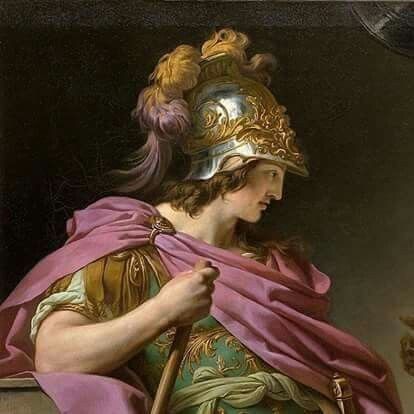
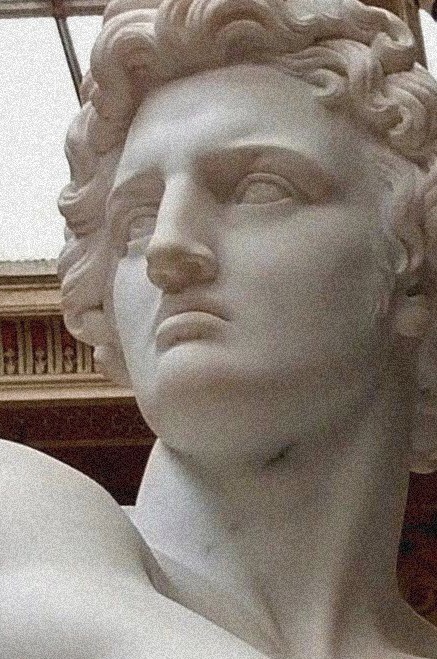


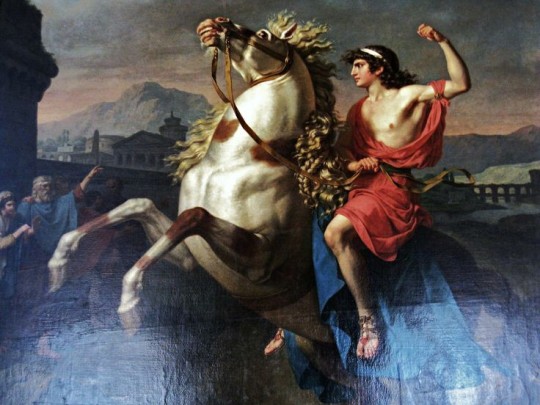
He had you when he was really young, barely fifteen years old.
Even though many men back then had children younger than his age.
Alexander didn't give you up, in fact, he insisted that you stay by his side, not caring for the criticism lashed towards him.
Not only that, but also tried to convince his father to legalizes you.
But his father refused to do so.
However, when King Philip II gets assassinated, and your father becomes king at twenty-one, the first thing he does is claim you as his true-born child.
For the Macedonian Greek king, you were not just a child related to him by blood...
You are the daughter he spends long nights telling about his glorious fights and hunts.
Unlike his father who belittles his achievements, you always seem excited to listen to him.
Also, you have the same interests as him, you love to always learn and improve even as a young child.
Alexander decided to bring you with him on his conquests, even though his mother, Olympias objected to the idea, stating that war is no place for a girl.
But your father insisted that you shall come with him because you are his daughter.
Of course, he kept you protected away from the battle field.
One time, Cleitus, one of the generals, flirted with you during the celebration of one of your father's victories.
Alexander got word of that and killed his friend with his own hands in drunken fury.
As years pass by, your health becomes more frail, and you start to pass out during long journeys.
Alexander appointed the highest physicians to cure you, but they failed to even find out what is making you so weak in the first place.
On your deathbed, you keep mumbling your father's name while Alexander keeps holding your hand, pleading for his gods to save you.
"Father...Father"
"Don't leave your father alone, (Y/n), don't be so cruel" the conqueror choked out the words, with tears falling down his face
But unfortunately, you passed away at the age of seventeen, leaving your father heartbroken and feeling great guilt.
Alexander also died a few months later from typhoid fever.
His last request was that they move your body to his tomb, so he can find you again in the afterlife.
2K notes
·
View notes
Text
Konstantin catching strays left and right wtf did he do to you people

#like I know about the sex offender scandal but that’s like the pne time he fucked up and it’s not even clear what happened#he was also a pretty great brother and son and generally very friendly with people#all royal children got fucked up in the romanov houshold and he was no exception#like he’s not perfect but not worse than alexander tbh#sorry I know josephine already has a group of defenders here so I had to step in for kostya
34 notes
·
View notes
Text
with greece legalizing gay marriage and everything i'm so tired of people diminishing queerness in greece to "oh your ancient greek ancestors would be proud ! alexander the great would be proud ! achilles would be proud sappho would be proud plato would be proud" etcetc.
queer rights progressing in greece wouldn't make our "ancient greek ancestors" proud because they had an entirely different concept of marriage than us, viewed women as objects to be sold and traded and only accepted homosexuality between men, or even more likely, a man and a literal underage boy.
gay rights in greece aren't benefiting some people who died a few thousand years ago or are Literally Fictional. greek queerness isn't just some ancient dionysian fantasy of feeding each other grapes and reciting poetry to each other by the sea. actual greek people who do benefit from this still exist. it doesn't honor some ancient guy who condoned slavery. it honors greek queer people who were out there protesting at the controversy this law raised with the church and actually made the effort to win this fight.
ancient greece isn't the epitome of queerness, not even close. absolutely in no way when it concerned exclusively just gay men. the epitome of queerness is the trans kid from my hometown who insisted on cutting their hair and dressing masculine even within their transphobic high school environment and strict orthodox family, or the woman who taught me programming who was married with children and realized she was aromantic fifteen years into marriage, or the gay punks who kept cops out of the university's anarchist hotspot.
greek queer people aren't history or mythology, and ancient greece isn't the queer utopia you make it out to be. we're still here, and we're fighting against the exact ideas our ancient culture perpetuated.
#🧅#if i have to hear ONE MORE WORD about achilles and patroclus i'm gatekeeping greek mythology. don't piss me off.#ancient greece sucked ass. if i were born in ancient greece as a queer person AND as an afab person i'd actually just kms.#NOTHING about actual real life queer people fighting for their rights is about them. the people who were /oppressed/ by#ancient greek society sure. but nothing about it was queer friendy or liberating.
562 notes
·
View notes
Note
Thank you for all Zeus support posts ♥️ everywhere I go, all my mutuals too, they blast Zeus for being an abusive father. I know it’s because of the modern books and games that’s depicting Zeus this way. But the misinterpretation and mistreatment still get under my nerves.
When it comes to judging Zeus, I noticed ethnocentrism is the biggest problem.
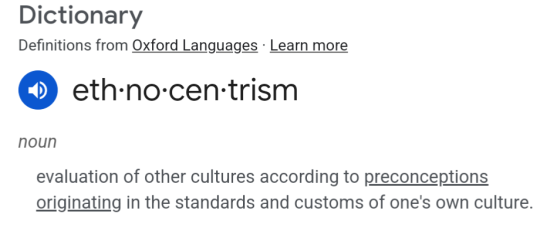
A lot of people judge the ancient world based on their own modern culture and what they fail to realize is that ethnocentrism is the same logic white settlers used against Native Americans. It's the same logic they used when they were kidnapping people from Africa to bring as slaves. It's the same logic used to justify destroying cultures and appropriating them. “We are helping the savages because they don't know any better.” This is the problem when judging a culture based solely on one's own culture. You kill the culture. You force it to follow your rules instead of studying it based on its own terms to better understand why it developed the way it did.
Zeus is a keystone part of the religion and I will always do my best to explain his importance.

I will always do my best to discourage ethnocentric talking points when people try to put him down because they don't realize they are using the same logic colonizers used against my people and every POC culture in history. They don't realize they are essentially calling the ancient Greeks “savages” in the same way white settlers called the same POC people they were killing while stealing their land and resources.
Zeus is the main figure in the Ancient Hellenic religion.
Everyone else is a part of his court but as the king of the gods, his part in the religion is essential and a key component of it is Xenia, hospitality.
When you start to judge the ancient Greek culture based on its own rules you will see that Zeus is order, that's why the theogony starts with chaos, in order to show how Zeus turned chaos into order. When you start to judge the ancient culture based on its own rules you will see that people used Zeus to justify their ancestry so of course he will have human children because, as the king of the gods, the ancient Greeks believed Zeus appointed kings via birthright because monarchies are by birthright. (He can't have them solely with Hera or they will just be gods, he needs to have them with a human to create demigods).

The idea behind him raping women stems from the misunderstanding of what was defined as rape in the ancient world. No matter the age or how willing they were, women back then were not able to consent because they were not in charge of their own lives. The consent needed to come from their fathers/husbands/whatever man was in charge, that's why it's often translated as rape, because there was no consent given by the men in charge because oftentimes they didn't know the child was a demigod until they were older and started showing signs of being different than other humans.
Just like how we have people who compete in the Olympics today, or people that are very talented or gifted, there were a lot of people back then who were also extraordinary humans and instead of thinking “wow, humans can be incredible,” the ancient Greeks believed an extraordinary human was the secret love child of a human and a god, depending on their specialty and which god that fell under, like Alexander the Great who was thought to be the son of Zeus, or Pythagoras (inventor of the Pythagorean theorem) who was thought to be the son of Apollo.

It's okay to acknowledge ancient views were different from modern views and progress for women has changed over time because these are stories that are older than the literal Bible so of course progress will happen and the ancient and modern world will be very different. But it's never okay to judge an ancient culture using the same logic that was used to destroy cultures and enslave people.
I defend Zeus because I do my best to destroy ethnocentric views whenever they pop up.

This is why research is so important and why I try to provide it as often as I can because once you start judging the culture based on its own laws and actual rules, you'll find that:
Zeus is incredible.
124 notes
·
View notes
Text
Cyrus and Aella Headcanons
❝commission: headcannons about the twins (Cyrus and Aella). — requested by 💻 anon.
❝ 📜 — lady l: I spent a few days thinking about how to create a different but complementary personality for the twins and this came out, I think it turned out good. They're my babies, my first OC's to be honest, and I need to write more for them. I hope you like it and forgive me if there are any mistakes! ❤️
❝tw: none.
❝📜word count: 1,208.

Cyrus and Aella have complementary personalities. Cyrus is calmer and more reflective, while Aella is energetic and adventurous.
From a young age, Cyrus has always demonstrated a serene and contemplative nature. He is a deep thinker, often lost in his own thoughts. He prefers to analyze situations before acting, evaluating all possible consequences.
His ability to formulate complex strategies is unparalleled. Cyrus loves studying ancient texts on military tactics and philosophy, drawing inspiration from great thinkers like Aristotle, who was also a mentor to his father.
Aella, on the other hand, is a true free spirit. Since she was a child, she was known for her tireless energy and thirst for adventure. Always looking for new experiences, she loves exploring unknown territories and engaging in challenging activities.
Aella has a natural talent for leadership. Her courage and determination inspire those around her, and she quickly gains the loyalty of her followers. On the battlefield, her presence is motivating, and her strategy skills are admirable. If she could (and perhaps can) carry a sword, she will.
Unlike Cyrus, Aella often acts on intuition. She trusts her instincts and is willing to take risks that others would avoid. This approach, while risky, often leads to surprisingly positive results.
Aella has a strong sense of justice and is a fervent defender of the oppressed. She does not hesitate to fight for causes she believes are just, even if it means confronting powerful adversaries and defying the laws that prohibit her from doing what she wants just because she is a woman.
The combination of her personalities creates a perfect balance. While Cyrus plans and calculates every move with precision, Aella is ready to act quickly and face any challenge with courage and vigor. If they decided to rule together, it would be almost impossible to stop them.
In crises, Cyrus can calm and guide Aella, while she can encourage him to step out of his comfort zone and make bolder decisions. They complement each other.
Communication between the twins is almost telepathic. They understand each other with a simple exchange of glances, allowing for fluid and efficient collaboration, whether in strategic discussions or battles.
This complementarity makes them unbeatable, whether in the administration of the empire, in leading armies, or in diplomacy. They support each other, using their strengths to cover each other's weaknesses.
Since they were little, Cyrus and Aella have developed a secret language that they use to communicate without others understanding. This makes them even more united and inseparable.
Language includes a combination of hand gestures, facial expressions, small sounds, and even visual cues. Each gesture or sound has a specific meaning, allowing for quick and effective communication.
In situations where they need to communicate without being overheard by others, such as in strategic meetings or on the battlefield or just to hide secrets from their parents, secret language is essential. It allows them to share critical information with others.
Alexander's passion for exploring and conquering unknown lands is inherited by Aella, who frequently ventures beyond the borders of the empire, always accompanied by Cyrus, who prefers to explore through study and diplomacy.
From an early age, Alexander the Great recognized the extraordinary potential of his twin children, Cyrus and Aella. He made sure that they both received exhaustive training in combat and strategy, aware that their skills would be essential to the continuity and expansion of the empire.
In addition to practical training, Cyrus dedicated himself intensely to theoretical studies. He read the texts of Aristotle, Socrates and other philosophers and historians, seeking to understand the dynamics of power, war and politics. His evenings were often spent in the library, where he studied maps and developed new strategies. Cyrus has developed a close bond with his uncle Hephaestion, mainly because they look so much alike.
Cyrus saw Hephaestion as a trusted figure to whom he could turn for advice and emotional support. Hephaestion, in turn, saw in Cyrus a reflection of himself and was dedicated to guiding him in the best way possible. Hephaestion helped Cyrus hone his diplomatic skills, teaching him to negotiate and mediate conflicts with the same effectiveness he demonstrated on the battlefield.
Aella, from a young age, showed an innate talent for combat, despite not actually fighting because she was not allowed to. Her training included a wide range of fighting techniques, from wielding swords and spears to hand-to-hand combat. She trained daily with the best warriors in the army, improving her strength, agility and precision. Due to her aptitude for fighting, although it was not common at the time, Aella ended up becoming quite close to Cleitus, who was mainly the one who taught her.
Cleitus, known for his skill and bravery on the battlefield, dedicated himself to training Aella in advanced hand-to-hand combat techniques. Under his guidance, Aella perfected her use of swords, spears and unarmed combat. Cleitus also focused on developing Aella's stamina and agility, subjecting her to rigorous exercises that made her not only strong but also quick and flexible. This prepared her to face opponents of different sizes and fighting styles.
Aella has a strong connection with nature and animals. She often spends her time in forests and mountains, while Cyrus prefers gardens and libraries. However, they both share a deep love for the natural world.
(Y/N), Alexandre's wife and mother of the twins ensures that her children receive a complete education, with tutors from different areas of knowledge. Cyrus shows great interest in philosophy and history, while Aella is interested in poetry and music.
Cyrus devotes hours to the study of great philosophers, including Socrates, Plato and Aristotle. He enjoys debates about ethics, politics and the nature of knowledge, often discussing these ideas with his tutors and applying them to his life and strategic decisions.
He analyzes the strategies of historical leaders, learning from their successes and failures. This enriches his own strategic capabilities, helping him develop innovative tactics for military campaigns.
Aella studies the works of great Greek poets, such as Homer and Hesiod, as well as the lyrics of Sappho and Pindar. She writes her own verses, expressing her emotions and experiences through poetry. There is no doubt that she inherited her father's love of reading, especially the Iliad.
Aella learns to play several instruments, such as the lyre and the flute and receives training in singing. Her tutors teach her about music theory, composition, and the Greek musical tradition.
The twins feel an innate curiosity about their mother's heritage and if given the opportunity, they will visit their mother's time to learn about her origins and cultures other than Greek.
Over time, Alexandre begins to trust his children's advice more and more. Cyrus becomes a trusted strategist, while Aella helps inspire and lead the troops, earning the soldiers' respect, just as her mother did years ago.
Despite the fierce love and loyalty that exists between the twins, there is a healthy rivalry between Cyrus and Aella, especially during training and games. This rivalry encourages them to constantly surpass each other.
After Alexander's death, Cyrus and Aella assume central roles in preserving and expanding the empire. Cyrus focuses on strengthening diplomatic alliances, while Aella leads military campaigns, both keeping their father's legacy alive.

#the lost queen#tlq#history#alexander the great x reader#yandere alexander the great#not really but you get the vibes#cyrus and aella#headcanons#historical characters#yandere history#yandere historical characters#oc's#my ocs#💻 anon
162 notes
·
View notes
